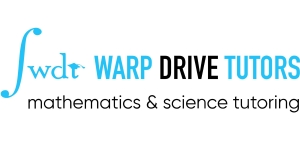AP® Physics
All of our tutors are experienced teachers at highly regarded, competitive schools, who have taught their subjects extensively and have received excellent student evaluations throughout their careers.
Some basics:
There are two AP® Physics courses. They are non calculus based AP Physics, previously referred to as “AP Physics B”, and calculus based AP Physics, still referred to as AP Physics C. The algebra-based track is often “Honors Physics” in schools that do not offer AP courses. The AP Physics B course, previously offered as a one year course, is now a two year sequence referred to as AP Physics 1 and AP Physics 2. It prepares you for the May AP tests in Physics 1 (first year) and Physics 2 (second year), both offered as such for the first time in 2015. Also, at many schools, the old AP Physics B course is now renamed as Honors Physics, and remains as a one year course. Calculus based AP Physics C also has two College Board AP exams in May; they are AP Physics C Mechanics and AP Physics C Electricity and Magnetism. The College Board recommends AP Physics C be taught as a two year sequence, but it is up to the individual school as to whether to do so, or keep it as a one year course. Will your school also make it a two year course? That depends on the school, but some have indeed done so.
See our blog, How to effectively study for HS Chemistry and Physics
Algebra based AP Physics
Topics covered include kinematics and vectors in two dimensions, constant acceleration problems, Newton’s Laws, thermodynamics, electricity, magnetism, optics, waves, and nuclear physics.
AP Physics C
Calculus based AP Physics C requires at least concurrent enrollment in a calculus class. Topics covered in addition to above include kinematics and vectors in three dimensions, non-constant acceleration problems, in depth discussion of magnetic flux and integral based determination of electric fields for different objects.
Subjects covered in non calculus based AP Physics will vary from year to year
Subjects covered in non calculus based AP Physics will vary from year to year, but they always include the above, though in some greater depth. Additional subjects that the AP Physics course covers will include a more in depth look at thermodynamics, magnetism, and nuclear physics.
Potential Problem Areas:
Literally, anything from the first week on. Because the course builds sequentially, students must have a firm grasp of the material as the course moves forward. Fundamentals taught in October, for example, are assumed knowledge for the remainder of the year.
How Can We Help You?
By meeting with a physics teacher who has taught this material for years, you can work through problems together on our interactive whiteboard, upload problems assigned in your class or work on problems from one of their own class assignments. You can also record the sessions for future use. Their ability to see you work through the problem on the whiteboard, as you do the problem, will prove immensely helpful.
Find a tutor to help
AP® is a trademark registered and/or owned by the College Board, which was not involved in the production of, and does not endorse, Warp Drive Tutors.
